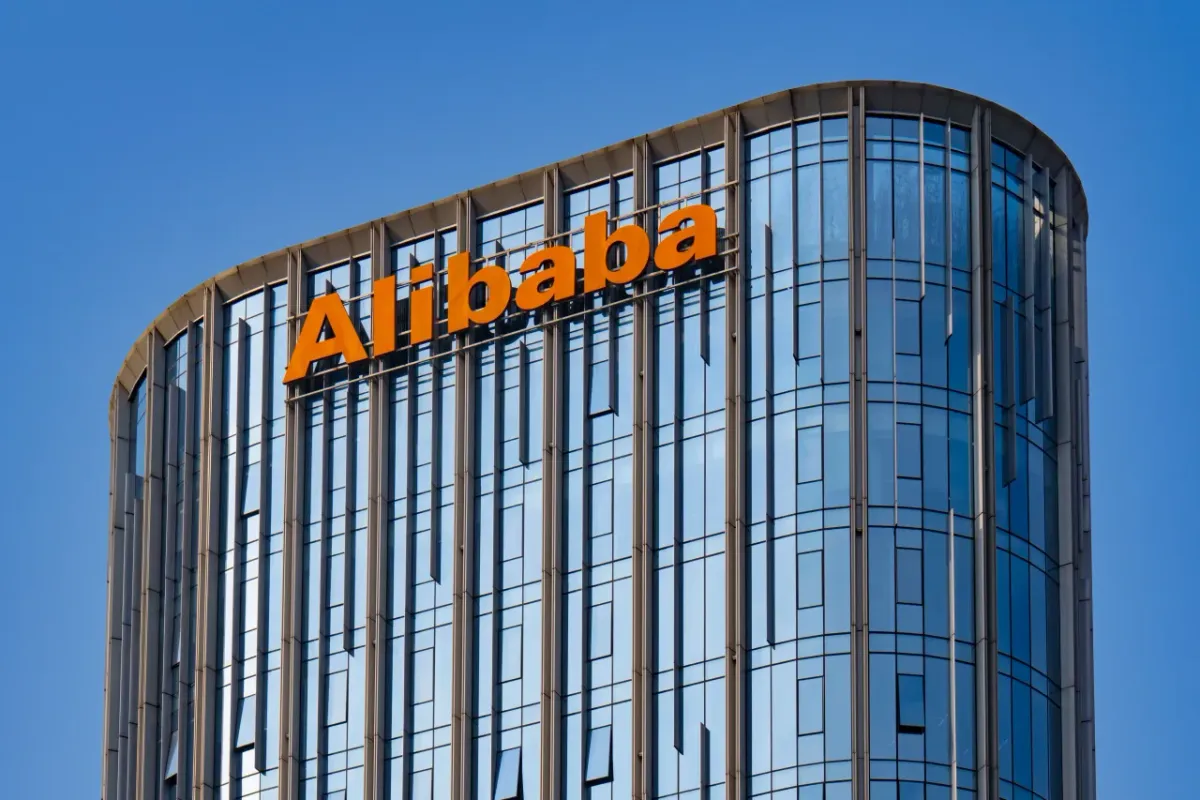This Chinese Tech Giant Just Doubled — And It’s Still 65% Below Its Peak

Alibaba Group Holding Ltd. is staging a powerful comeback—and investors are beginning to take notice.
Once left behind in China’s tech crackdown, the e-commerce and cloud giant has emerged as one of the country’s most compelling artificial intelligence (AI) plays, helping fuel a stunning $250 billion rally in 2025. Its U.S.-listed shares have more than doubled this year, igniting a wave of interest from global fund managers who see untapped potential and growing fear of missing out (FOMO) on one of China’s biggest rebound stories.
Yet, despite the excitement, Alibaba’s stock still trades more than 65% below its 2020 all-time high, suggesting room for further upside—or caution, depending on who you ask.
AI Optimism Powers Alibaba’s Revival
Beijing’s push for technological self-reliance has cast Alibaba in a leading role. The company is leveraging its deep infrastructure in cloud computing, massive user data pools, and AI development to align with China’s national priorities. CEO Eddie Wu recently announced that Alibaba plans to expand its previously projected $53 billion AI budget over the next three years—though details remain scarce.
In a market where AI spending often signals strength, this commitment is resonating. U.S. hyperscalers like Amazon, Microsoft, and Google’s parent Alphabet are projected to pour more than $344 billion into AI this year alone, much of it going toward data center expansion. While Alibaba’s spending is more conservative by comparison, it has still managed to win investor confidence, especially as its cloud business shows real momentum.
Alibaba Cloud posted a 26% jump in revenue last quarter, making it the company’s fastest-growing segment and a clear indicator of AI-driven growth. According to investment manager Bush Chu of Aberdeen Investments, the company's focus on sustainable expansion makes sense. “Alibaba’s spending is quite measured,” he noted. “But if it wants to serve global clients, it may need to go bigger.”
Undervalued Compared to Global Tech Giants
Despite the strong rally, Alibaba’s valuation remains modest compared to global peers. It currently trades at around 22 times estimated forward earnings in Hong Kong—double its three-year average, but still below its peak of 29 times and significantly behind Amazon and Microsoft.
That has some investors calling Alibaba an undervalued gem in a high-priced global AI market.
“I don’t think anyone will be calling Alibaba’s valuation egregious anytime soon,” said Richard Clode, a portfolio manager at Janus Henderson in London. “That’s likely why many global investors feel more comfortable entering here.”
The sentiment is starting to shift. U.S. fund manager Cathie Wood, known for her high-growth bets, reopened a position in Alibaba’s American depositary receipts last month for the first time in four years—another sign that overseas investors are dipping their toes back in.
FOMO Builds as Funds Shift from Underweight
While domestic investors have already piled in—owning 11% of Alibaba shares as of September 30, up from 8.6% a month earlier—international funds are still playing catch-up. According to Morgan Stanley data, global portfolios remained underweight on Alibaba by 1.3% relative to its MSCI China Index weighting as of August’s end.
That underweight position may not last long.
“We expect this to change,” said Jian Shi Cortesi, a fund manager at Gam Investment Management. She sees “significant upside” in Alibaba’s stock, especially if sentiment continues to improve. “The fear of missing out could drive more buying after the strong share price rally.”
Still, not all investors are convinced. Concerns over China’s broader economic outlook and the ultra-competitive tech market have kept short interest elevated. S&P Global data shows short positions in Alibaba’s Hong Kong shares surged to 0.47% of the free float—its highest level since 2019.
Risks Remain Despite Momentum
There are plenty of reasons for caution. Regulatory uncertainty, slow domestic consumption, and fierce price wars—especially in areas like food delivery—remain headwinds. While the AI narrative is compelling, some worry the hype could outpace actual revenue generation.
Another red flag: Alibaba’s 14-day relative strength index (RSI) is flashing overbought signals, a technical indicator that suggests the rally may have gone too far, too fast.
Yet, the bullish case continues to dominate the sell-side narrative. Analysts are almost unanimously rating Alibaba as a “buy,” citing its unique position in China’s AI ecosystem.
Why Alibaba Stands Apart in China’s AI Race
While the U.S. boasts a rich field of AI-focused companies, China’s landscape is more limited. Fund manager Xiadong Bao from Edmond de Rothschild Asset Management points out that Alibaba is one of the few Chinese firms combining cutting-edge large language models, robust cloud infrastructure, rich data, and chip access under one roof.
That gives it a rare edge—and makes it a standout among China’s few true AI contenders, alongside Tencent and the unlisted ByteDance.
Following the unexpected success of DeepSeek earlier this year—a sign of China’s growing AI prowess—investors have turned to Alibaba as the country’s flagship AI investment. The company has become a favorite among mainland investors, who see it as a national champion in the making.
Final Thoughts: Can Alibaba Sustain the Rally?
Alibaba’s resurgence in 2025 has been nothing short of remarkable. The stock’s powerful climb reflects renewed confidence in its AI ambitions, stabilizing fundamentals, and a broader shift in sentiment toward China tech.
But as the stock edges toward technical overbought territory and short interest climbs, investors must weigh whether this is the beginning of a sustained AI-fueled recovery—or a temporary bounce amid ongoing uncertainty.
Either way, Alibaba’s evolving role in China’s AI push and its still-reasonable valuation are keeping the FOMO alive for now.
